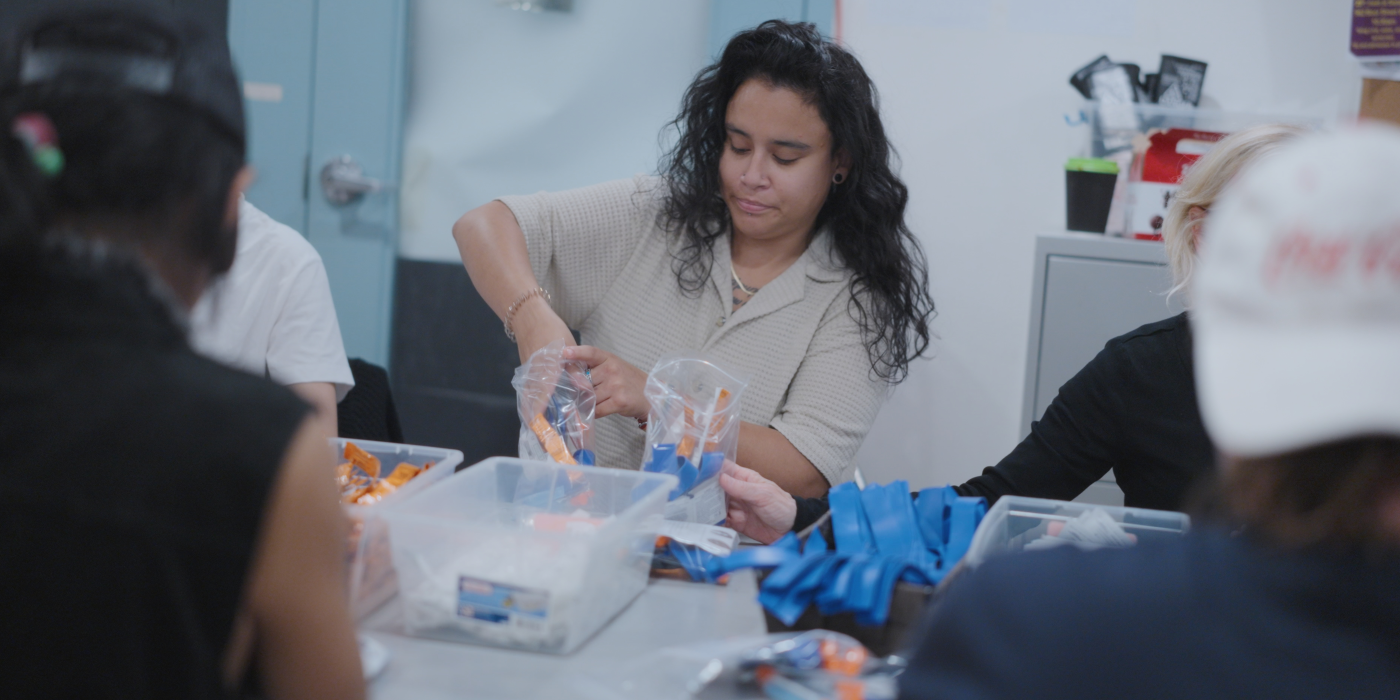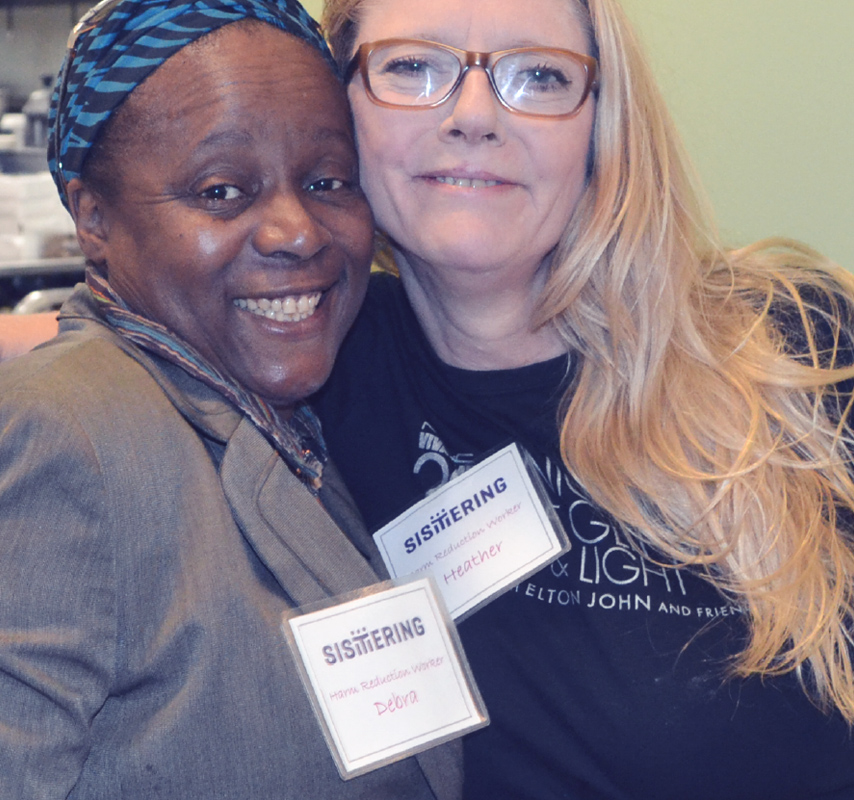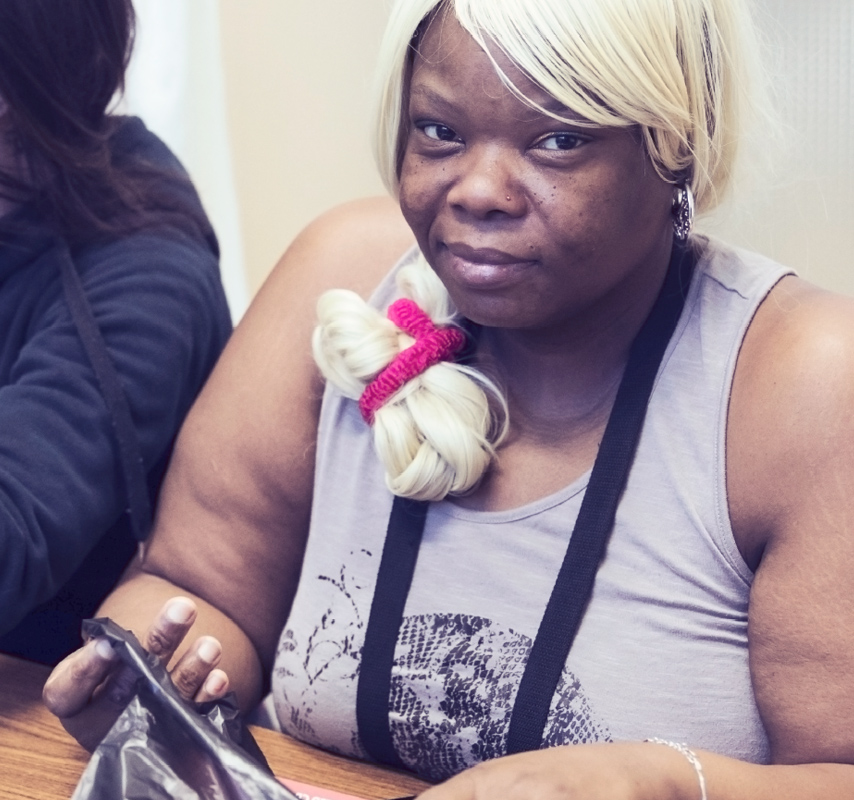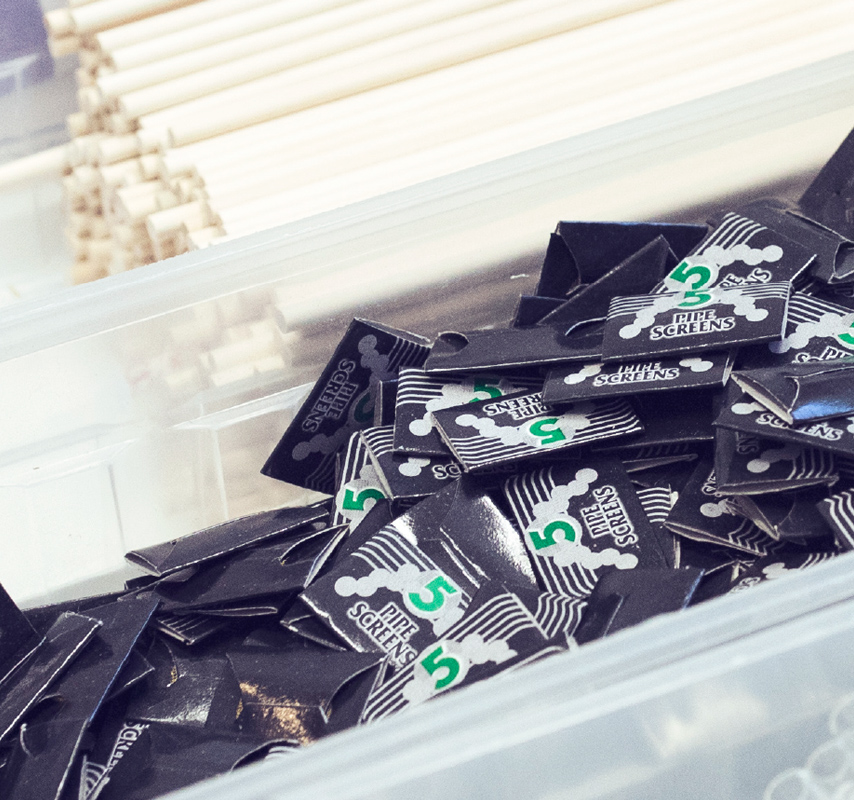
Harm Reduction: Use Safely, Stay Healthy
Harm reduction is a pretty simple concept: offer substance users and sex workers the information and support they need to use safely and stay healthy. It’s a social justice and public health response to drug use; rather than criminalizing users it focuses on reducing the harm associated with high risk behaviors—HIV, Hepatitis C, STDs, for example—that come with shared needles and crack pipes, and unprotected sex.
“Putting the harm reduction concept into practice calls for a team who have lived experience because the wisdom of the community will always exceed the knowledge of the expert.”
—JOHN MCKNIGHT
What is harm reduction?
Harm reduction focuses on reducing social, economic and health-related issues, helping women involved in substance use and/or sex work to build resiliency and improve overall health and wellbeing.
What is a Peer Harm Reduction Worker?
Sistering employs a team of Peer workers who have lived experience with drug use to help deliver programs at our 24/7 Drop In and through our Outreach programs; they also make and distribute harm reduction kits and educational materials.
Called Peer Harm Reduction Workers, our team connects with women who are using substances and/or are street involved because they have credibility; they have walked that road and in fact, may still be using. But they are strong, committed, compassionate advocates for the program and the women they serve—they know they’re making a difference and Sistering values them and the work they do.
In addition to providing practical supports such as harm reduction kits, self-help initiatives, and referrals to government and counselling services, our Peer team helps build a community where the women we serve are honoured, respected and supported in their ability to make their own life decisions.
What do Peer Harm Reduction Workers do?
Peer workers are considered the best source of authentic support because of their lived experience. They help determine effective interventions to reduce the harm caused by substance use, educating drug users on how to use more safely and teaching safe sex practices to fight the spread of HIV/AIDS and Hepatitis C. They make and distribute safer smoking and injection kits and make referrals to other health agencies that provide support. And often, just as importantly, they are the voice of women who have no voice.
Are Peer Workers specially trained?
Lived experience is a Peer worker’s most critical tool. But workers also receive harm reduction training from Toronto’s Public Health department—how to implement safer drug practices in their outreach work, for example, or how to administer Narcan to reduce the effects of opioid overdose.
They also learn important personal life lessons: how to set boundaries so they keep enough of themselves for themselves; how to manage self care so they don’t burn out; how to teach and lead by example; and how to accept that they can’t make things right for everyone they touch but, at the end of the day, they did the best they could.
Is the work they do important?
Peer Harm Reduction Workers save lives, sometimes their own. They empower substance users and sex workers to use safely and live with dignity. They ensure that information is shared and that women know what they are entitled to, so that no one gets left behind. And because harm reduction work at Sistering is paid employment, the team gains not only supplemental income but also renewed self-confidence and sense of purpose and personal value.
In Their Own Words
Harm reduction means safety—and safety is sexy. We don’t condemn or condone. The program is not punitive. The reality is, it’s a hard job. I’m not better than you. I could pick up and use again. The use is not going away. Get a harm reduction job—and you start to build a life.
— D
The women keep us going. We’re all peers—and we learn something new from each other. I had been sober for 10 years when I lost my son. I cycled out of control and was living on the street. We are all living with addiction—but that does not mean we are bad women or bad moms. Helping women empowers them to help themselves.
— N
I became a Peer worker for my own mental health. A lot of Black women have been victimized and they are too proud to ask for help. They think, ‘It’s life; it’s OK; it’s nothing’. When we’re in a violent situation we don’t see the choices. I want to help women see this is not their only option. I want to make a difference.
— N
It’s about experience, applying what I have been through, and what I have learned, to help other people. I know how they feel—they are not alone like I was. It’s hard work. And there is stress. Am I worthy of being a Peer worker? Am I a good role model? I don’t know. But I come to work. I do my shift. We’re not perfect!
— L
If it hadn’t been for harm reduction, I wouldn’t be here. I pass along what I have learned. Sometimes, when someone offers help, people shut down. They’re scared. But what I can tell them is important; I’m helping people stay safe. Drugs will never go away. So instead of focusing on eradicating the problem, we should focus on making sure people have the information they need to be safe.
— C


